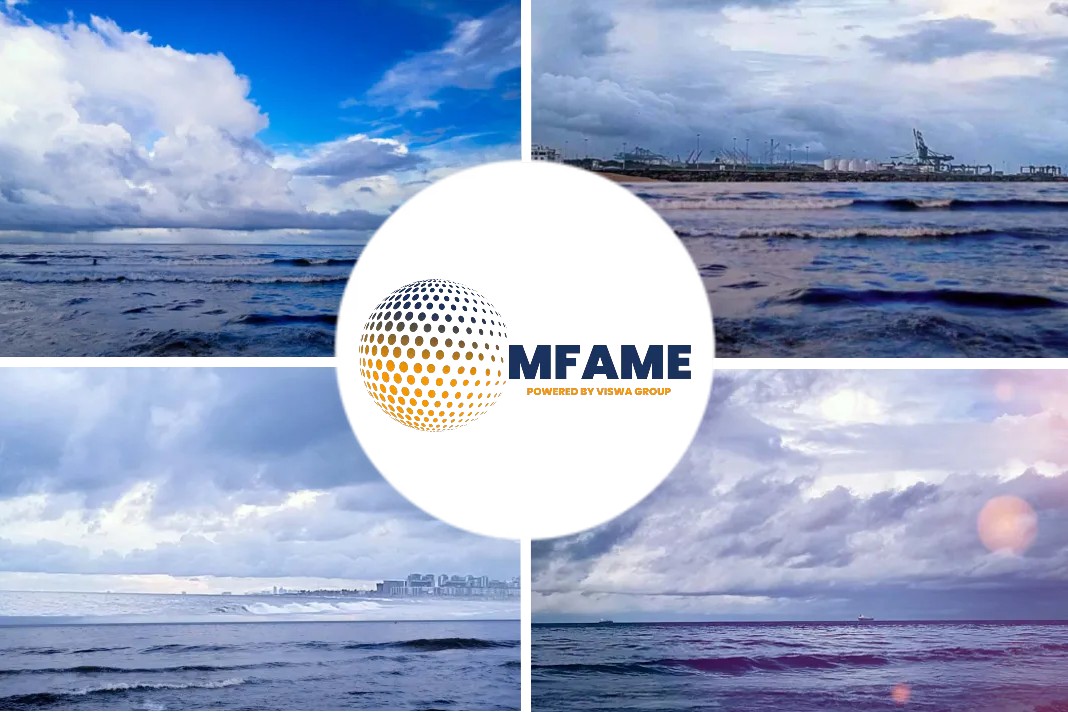- Wärtsilä and Wasaline have signed a 10-year optimised maintenance agreement covering the company’s new ferry Aurora Botnia.
- The ship’s propulsion is based on a hybrid solution featuring a Wärtsilä 31DF dual-fuel engine and batteries.
- It emits no particulate matter, and minimal nitrogen oxides and sulphur oxides.
Wärtsilä and Wasaline have agreed to a 10-year optimised maintenance agreement for the Aurora Botnia, the company’s new ferry as reported by Riviera.
Eco-friendly ferry
Aurora Botnia is said to be the most environmentally friendly ropax ferry in the world.
The ship’s propulsion is based on a hybrid solution featuring a Wärtsilä 31DF dual-fuel engine and batteries.
The Wärtsilä 31DF will operate primarily on LNG fuel but will also be able to use bio LNG, which can reduce CO2 emissions by up to 90% compared with conventional marine fuels.
It emits no particulate matter, and minimal nitrogen oxides and sulphur oxides.
The Wärtsilä optimised maintenance agreement includes the latest digital solutions based on artificial intelligence to provide predictive maintenance support and the ability to identify potential faults before they happen.
Maintenance agreement
The vessel will act as a floating test laboratory linked to Wärtsilä’s Smart Technology Hub in Vaasa, Finland, allowing real-time operational monitoring.
“This will maximise efficiency and provide valuable data for future developments of solutions capable of the highest levels of sustainability,” says a statement.
“We have worked closely with Wärtsilä for a long time and this partnership has paid huge dividends in terms of efficiency and environmental sustainability.
We had no hesitation, therefore, in opting for a Wärtsilä maintenance agreement for this new ship, which will be the first car and passenger ferry in the world to have a Clean Design class notation.
It already now meets the proposed ‘EU fit for 55’ programme, which seeks a reduction in CO2 emissions of 55% by 2030,” says Wasaline managing director Peter Ståhlberg.
Developing control systems
Rolls-Royce is collaborating with Sea Machines Robotics, a developer of autonomous control systems, to develop and sell autonomous control and crew support systems to the marine market.
The focus is on the development and sale of fully and semi-autonomous vessel control, remote systems and situational awareness products aimed at yachts, commercial and government vessels.
These systems will complement Rolls-Royce’s MTU NautIQ marine automation portfolio.
As part of the agreement, Rolls-Royce Power Systems will receive sales and service rights for existing and future Sea Machines’ products.
Both companies will also work together to develop new capabilities to provide customers with the tools to aggregate and analyse vessel data and control vessels based on this information.
Autonomous systems
Sea Machines chief executive Michael Johnson says, “Our autonomous vessel control products and advanced perception systems are pioneering the revolutionary shift of conventional and manual vessel control effort from human to intelligent technology.
Autonomous systems take over routine efforts, reduce stress for crews and thus increase operational predictability and safety.”
Rolls-Royce Power Systems vice president, global marine Denise Kurtulus says, “As part of our PS 2030 strategy, we are evolving from a propulsion supplier to a provider of integrated sustainable solutions.
In the marine sector, we want to provide our customers with complete solutions from ‘bridge to propeller’ with the highest quality customers have come to expect from us.
We are delighted to have found another strong and agile partner in Sea Machines to help us achieve this.”
Did you subscribe to our newsletter?
It’s free! Click here to subscribe!
Source: Riviera
















